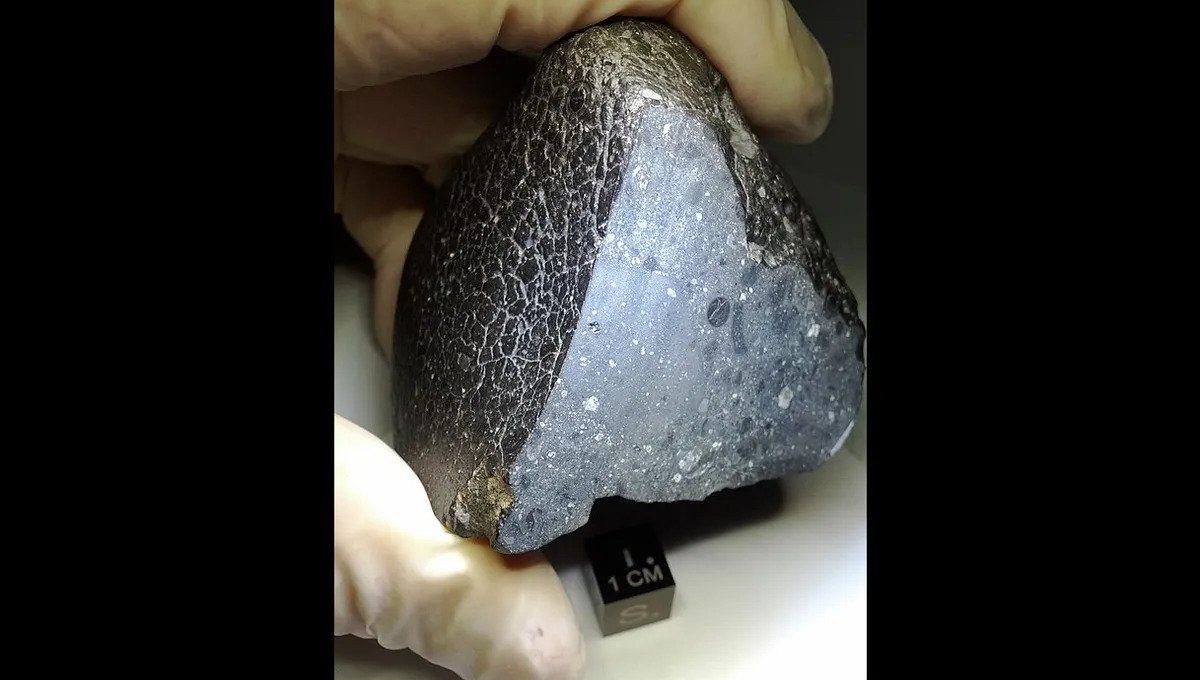
Even in an age of rovers on Mars and probes to asteroids, meteorites provide vital information that we often can’t get anywhere else. Some of the knowledge we seek is stored magnetically, making its wiping a scientific tragedy. Yet that happens when meteorite hunters use hand magnets to discover their targets, and one study shows it’s frustratingly common.
Younger readers may not remember a time when floppy disks and other information storage devices needed to be kept safely away from powerful magnetic fields, lest the data they carried be lost. Those old enough to remember, however, might feel an awful sense of recognition reading the story in Science Magazine of how a piece of the meteor nicknamed Black Beauty (NWA 7034) was overridden before it could be studied. Computer users of the 80s and 90s could usually reconstruct the lost information if they went to enough effort – but when the item in question is a piece of Mars that formed 4.4 billion years ago, that’s not possible.
Planetary scientists hoped Black Beauty would answer important questions about the magnetic field thought to have once shielded the Martian atmosphere from depletion. Perhaps that will still occur, but as the paper reveals, it will require another piece of the asteroid, strewn across parts of the Western Sahara, to be kept well clear of powerful magnetic fields.
The problem is the use of powerful hand magnets by asteroid hunters and dealers to check if a suitable-looking rock is likely to be a meteorite. This test may increase the chance of it reaching scientists, but in the process, the rare-earth magnets wipe the pre-existing magnetic field and replace it with one that reflects their own.
The paper investigates the effect of varying field strengths on basalt, which is used as a proxy for meteorites. It shows that such exposure eliminates the natural magnetism and creates a distinctive pattern where the outer parts of the meteorite are more heavily magnetized than the core.
Unfortunately, the paper also reports that all the scattered pieces of Black Beauty the authors were able to test show just this pattern, leaving us none the wiser as to early Martian magnetism. Only one other known Martian meteorite may be old enough to predate the loss of planetary magnetic field, and that is borderline.
“It’s like having this unique piece [of information] destroyed,” MIT’s Dr Foteini Vervelidou told Science. “Why would you buy an amazing painting and then throw some sauce on it?”
Hand magnets are used because meteorites are often rich in iron, to the point they were the source of early weapons. However, the Earth has plenty of iron-rich rocks as well – merely finding out that a stone is attracted to a magnet doesn’t prove it came from the sky. Indeed, many of the most scientifically valuable meteorites are low enough in magnetic materials they won’t respond to even a powerful magnet. Just as on Earth, iron on larger bodies in the Solar System sank to the core and is therefore unlikely to have been knocked off in an asteroid impact.
The authors express their hope the work will encourage meteorite hunters to skip the magnet test. This may be successful among semi-professional teams using camera networks to track the locations where meteorites fall. However, Black Beauty and many other meteorites were collected in deserts by people for whom such finds represent a vital source of income. The author’s suggestion of using expensive susceptibility meters may be hard to implement.
The study is published in the Journal of Geophysical Research: Planets.
An earlier version of this article was published in April 2023.
Source Link: Why You Shouldn't Use Magnets To Hunt For Meteorites